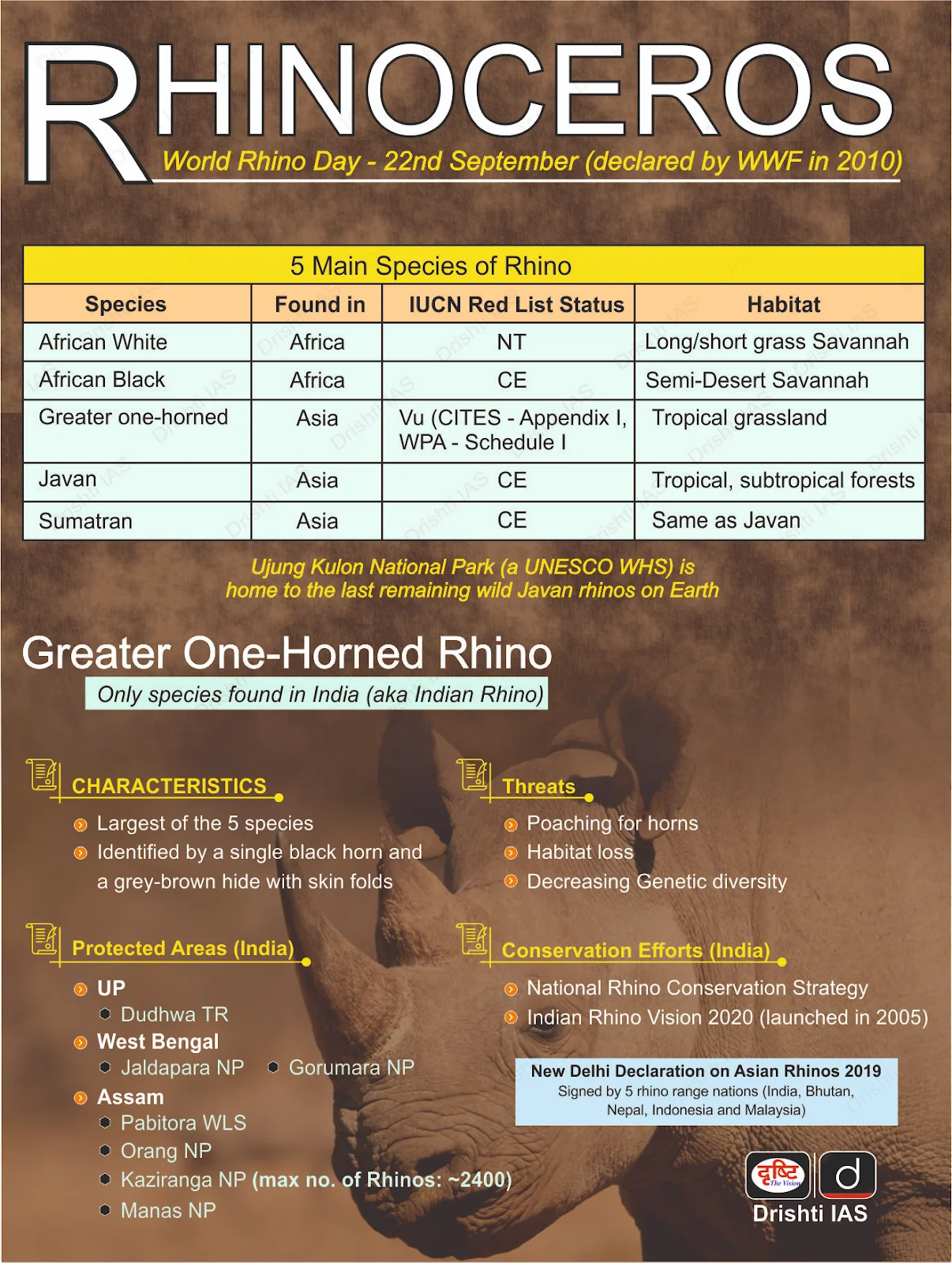DNA Profiling of Assam Rhino Horn | 15 Jul 2025
The Assam Forest Department, in collaboration with the Wildlife Institute of India (WII), has launched a DNA profiling initiative for 2,573 rhino horn samples to strengthen conservation and wildlife crime investigations.
DNA Profiling of Rhino Horns:
- About: As part of anti-poaching and conservation efforts, rhino horn samples retained during the public burning of seized and naturally deceased rhino horns in 2021 are being DNA profiled.
- Samples, mainly from poaching seizures and natural deaths, were verified at Kaziranga National Park, Assam.
- Genetic Analysis: Samples have been sent to the Wildlife Institute of India (WII), Dehradun, for DNA analysis under the RhoDIS (Rhino DNA Index System) India programme.
RhoDIS India:
- Launched in 2016, RhoDIS India is a collaborative initiative of the Ministry of Environment, Forest and Climate Change (MoEFCC), rhino-range States, the WII, and WWF-India.
- It aims to create individual DNA profiles of rhino horns for integration into a national forensic database, supporting wildlife crime investigations and the genetic conservation planning of the one-horned rhinos.
One-Horned Rhino (Rhinoceros unicornis):
- The greater one-horned rhino (or Indian rhino) is the largest rhino species, identified by a single 8–25 inch black horn and armor-like skin folds.
- It is mostly solitary and has overlapping, loosely defined home ranges. It is a grazer, feeding mainly on grasses, along with leaves, fruits, and aquatic plants.
- Assam holds 80% of the global one-horned rhinoceros population, with Kaziranga National Park (1,300 sq km) alone housing 70% of them(as of 2022).
- Due to sustained conservation efforts, India’s rhino population has grown by 170% since the 1980s, rising from around 1,500 to over 4,014 in 2024.
| Read More: State of the Rhino 2023 |

